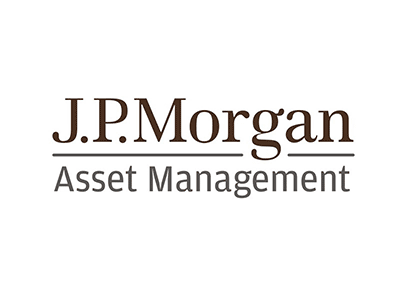Austin Forey is an emerging markets veteran with almost four decades’ experience
JPMorgan have a large team of analysts covering emerging markets
The managers seek to invest in high-quality companies and hold them for the long term
How it fits in a portfolio
JPMorgan Emerging Markets Investment Trust aims to grow capital over the long term. It invests in growing businesses across a diverse range of emerging economies such as India, China, and Taiwan. It’s important to note that whilst emerging markets offer lots of opportunity for investors, they're higher risk and typically more volatile than developed markets.
Given its focus on growth, the trust could complement more value orientated Asia and emerging market investments. It could also be blended with other trusts or funds that mainly invest in developed markets as part of a globally diversified portfolio. When investing in closed-ended funds you should be aware the trust can trade at a discount or premium to net asset value (NAV).
Manager
Austin Forey is a seasoned emerging markets investor and has managed this trust since 1994. His career at JPMorgan began in 1988 during which he’s built up an extensive knowledge of global markets. His analyst career focussed on the engineering, financials, and property sectors. He served as deputy head of UK research before joining the emerging markets team in 1994.
Forey’s supported by co-manager, John Citron who was appointed in March 2021. He joined JPMorgan in 2009 and worked as a European equities analyst before joining the emerging markets team in 2017.
The duo have worked closely for several years and also manage other funds focused on emerging markets, adopting the same core process throughout.
The managers benefit from a well-resourced team of over 100 investment professionals across nine countries, giving them eyes in most corners of the market. We think this is invaluable given the vast range of countries, cultures, and companies within their investable universe.
Process
Forey and Citron seek to invest in high-quality companies with sustainable growth prospects and hold them for the long term. They pay close attention to the financial strength of a business, the quality of the management team and the level of corporate governance. Other factors, such as the dividends a company pays and how changes in a country's currency might impact a business, are also considered.
As lead manager, Forey oversees how the trust’s portfolio is constructed. He also leans on the wider team of analysts who carry out extensive research and provide new ideas. They travel across the region to visit companies and gain insight into what's happening in different markets.
The team looks for quality companies with the aim of calculating how much a company will grow its earnings over the next five years. They consider the financial strength of a business, the quality of the management team, and the level of corporate governance. Other factors, such as the dividends a company pays and how changes in a country's currency might impact a business, are also considered.
This whittles a large universe down to a final portfolio of around 50-70 companies. Geographically, the managers invest the most in China, but they do invest less than the benchmark here. Taiwan and India also make up large parts of the portfolio. Compared to the benchmark, the managers find plenty of opportunities in Argentina and South Africa.
On a sector level, the trust has sizeable investments in technology and financials companies, particularly banks. There’s also more invested in consumer staples companies than the benchmark.
The managers mainly invest in large, established firms, but also invest in some medium-sized companies with greater growth prospects. They also have the flexibility to invest in higher-risk smaller companies, though they’ve tended not to venture into this area of the market. The managers may also use derivatives to assist with managing the trust, which increases risk.
When making any investment, they do so with the long term in mind. As a result, changes to the trust don’t happen often. However, they’ve found some interesting opportunities over the past year.
In the past year, the managers have added positions in the Chinese travel company Trip.com and Korean semiconductor business SK Hynix, which they view as having improved in quality over the past few years.
In contrast, investments were sold in Chinese insurance company Ping An and Arcos Dorados, which operates McDonald’s restaurants across Latin America.
The trust also has the ability to borrow money to invest with the intention of increasing returns (known as gearing) which increases risk. Currently the managers don’t use this facility.
Culture
JPMorgan is one of the world's biggest asset managers. It has investment professionals based all over the world, and the team behind this trust can tap into this experience and local knowledge. There has recently been some change in the analyst team in China in order to better embed JPMorgan’s culture, but at a senior level the team has remained stable.
Forey has remained loyal to the group and spent his entire career at JPMorgan, and we think he’s dedicated to the emerging markets team. We view it positively that the managers are incentivised to focus on long-term performance.
ESG Integration
JPMorgan committed to integrate Environmental, Social and Governance (ESG) factors into its investment processes for active funds in 2016 and ESG is now a foundation for investment decisions across the firm. JPMorgan funds take a variety of different approaches, from quantitatively scoring companies on a variety of ESG measures to help with portfolio construction, to more qualitative analysis achieved through fundamental research and company meetings.
All fund managers have access to the central Sustainable Investing team, as well as thematic research and analytics, which focus on climate change and carbon transition. Investment teams are required to demonstrate their progress on integrating ESG to the Sustainable Investment Oversight Committee, a group of senior managers from across the business. Their progress is measured against a 6-metric framework and must satisfy several conditions before it’s certified as ‘ESG Integrated’. If the strategy doesn’t meet this threshold, the investment team in question will need to incorporate feedback from the Committee and reapply to restart the review process. Investment teams are then subject to ongoing monitoring. We like this objective approach to internal ESG accreditation.
The firm has detailed voting policies which are specific to each region they invest in and account for local customs. Investment teams and investment stewardship specialists in the relevant region are responsible for implementing those policies, based on their deep knowledge and experience of the country, sector and company. A detailed fund-by-fund and company-by-company voting record is available on the JPMorgan website, although voting rationale isn’t provided. Fund managers also regularly engage with the companies they invest in, and there are a number of case studies on their website and in their annual Investment Stewardship report.
In February 2024, JPMorgan Asset Management controversially withdrew from the Climate Action 100+ collaborative engagement initiative, citing that it had built up its own stewardship capabilities. Following a meeting with the firm’s Global Head of Sustainable Investing, we were left feeling confident that it remains firmly committed to sustainability.
While ESG is integrated across the firm, this trust doesn’t have a responsible mandate.
Cost
The trust's ongoing annual charge in the year to 30 June 2025 was 0.79%, which is the same as the previous year. Investors should refer to the latest annual reports and accounts and Key Information Document for details of the risks and charging structure.
If held in a SIPP or ISA the HL platform fee of 0.45% (capped at £200 p.a. for a SIPP and £45 for an ISA) per annum also applies. Our platform fee doesn't apply if held in a Fund and Share Account or a Junior ISA. As investment trusts trade like shares, both a buy and sell instruction will be subject to our share dealing charges within any HL account except online deals in a Junior ISA.
Performance
The trust has delivered strong performance under Forey’s management. Over the past 10 years, the trust’s return of 182.87%* is ahead of the benchmark, which rose 152.80%. Past performance isn’t a guide to the future.
Over the trust’s financial year to the end of June, its share price rose 9.8%, compared to 6.3% for the benchmark. During this period, the trust’s net asset value (NAV) grew less, rising 4.9%. This meant the discount at which the trust trades (the difference between the share price and value of the trust’s underlying assets) decreased from 12.0% to 8.2%. At the time of writing, the trust trades at a discount of 9.28%.
Among the top performing investments for the trust over the financial year were the Latin American e-commerce platform MercadoLibre, and Banco Bilbao, which despite being headquartered in Spain, receives most of its earnings from emerging markets such as Mexico. Industrials companies in the trust didn’t perform as well and stock selection in the sector was a detractor to returns.
In the last financial year, the trust paid an annual dividend of 2.10p per share, an increase of 10.5% from the previous year.
All investments and any income from them can fall as well as rise in value, so investors could get back less than they invest.
Annual percentage growth
September 20 – September 21 | September 21 – September 22 | September 22 – September 23 | September 23 – September 24 | September 24 – September 25 | |
|---|---|---|---|---|---|
JPM Emerging Markets Investment Trust | 20.81% | -20.62% | 3.20% | 9.14% | 17.98% |
MSCI Emerging Markets | 13.70% | -12.79% | 2.59% | 15.14% | 17.74% |


